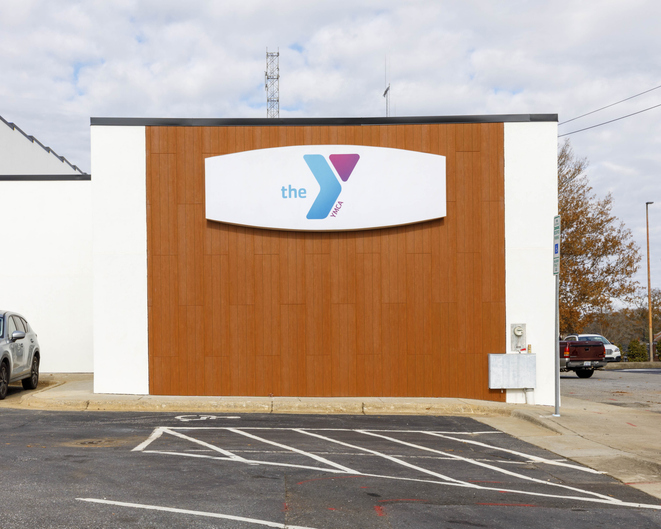The YMCA is a place many associate with community, sports, and personal growth. But if you or someone you care about has experienced abuse in this setting, it can undermine that sense of safety and trust. It’s an overwhelming situation, and you may not know what steps to take to address what has happened.
If you’re facing this difficult experience, know that help is available. You don’t have to go through it alone.
Step 1: Ensure Immediate Safety
The first priority after experiencing any form of abuse is ensuring immediate safety. If you or your loved one is in danger, leave the situation and head to a secure location. You can call 911 for help or reach out to local authorities. Safe housing and shelters are also available in many areas if you need a temporary place to stay.
Additionally, if others may still be in harm’s way, contacting law enforcement can play an important role in preventing further abuse from occurring.
Step 2: Seek Medical Attention
For some forms of abuse, seeking medical attention is an important next step. If applicable, a healthcare provider can assess physical injuries, provide treatment, and collect evidence. Many medical facilities have professionals trained to handle these sensitive situations, and they can guide you through the process with both care and confidentiality.
Even if physical injuries aren’t visible, speaking with a doctor can help document any potential long-term impacts of the abuse, which may be relevant if you decide to pursue a legal claim.
Step 3: Find Emotional Support
Experiencing abuse can have a deep emotional impact, and it’s important to prioritize your mental health. Reach out to a counselor, therapist, or support group that specializes in helping survivors. These professionals can provide a safe space where you can process your feelings, find coping strategies, and begin the healing process.
Support groups, both in-person and online, connect you with others who’ve been through similar experiences. Knowing that you’re not alone can be a powerful step toward recovery.
Step 4: Report the Abuse
Reporting abuse can feel like a daunting task, but it’s often an important step toward justice and accountability. Many YMCA facilities have established reporting procedures to address misconduct. These procedures are typically outlined in their policies or member agreements.
Here’s where you can start:
- Report Internally: File a complaint with the local YMCA management or designated authorities within the organization. They may have a specific person or team handling allegations.
- Contact Law Enforcement: If the abuse constitutes a crime, reporting it to the police may initiate a criminal investigation. You can work with an attorney to understand how the legal process will proceed.
- Contact Regulatory Bodies: Some states have oversight bodies for organizations like the YMCA. Filing a complaint with these entities can sometimes lead to additional accountability.
If you’re unsure how to proceed, contacting a legal professional can help you determine your best course of action.
Step 5: Document What Happened
Recording details about the abuse as soon as possible can make a significant difference if you decide to pursue a legal case later. Even small details can be important. Write down:
- Dates, times, and locations of incidents
- Names and roles of any people involved
- Any physical evidence, such as emails, text exchanges, or photos
If relevant, consider keeping a journal to document how the abuse has impacted your emotional, physical, or financial well-being over time.
Your attorney can help organize this information into a comprehensive claim or case.
Step 6: Contact an Experienced Attorney
Legal action can feel overwhelming, but a knowledgeable attorney will guide you step-by-step. It’s important to seek a lawyer specializing in abuse cases, particularly those involving organizations like the YMCA. They’ll understand how to address the unique challenges of these cases and will fight to protect your rights.
Your attorney can:
- Explain your legal options
- Represent your interests in filing claims or lawsuits
- Handle communications with the YMCA or other involved parties
- Seek compensation or justice for your experience
Most attorneys offer free consultations, which can be a helpful, no-commitment way to better understand your rights and options.
Step 7: Explore Compensation Options
Depending on the circumstances, you may be eligible for financial compensation, which could cover medical expenses, counseling, lost wages, or other damages caused by the abuse. Your attorney can advise you on pursuing compensation through:
- Civil Litigation: Suing the responsible party or parties for damages
- Insurance Claims: Leveraging liability policies of the YMCA
- Victim Compensation Funds: Some states offer compensation programs for survivors of abuse
Seeking compensation is not just about receiving financial support; it’s also about holding those responsible accountable for their actions.
Step 8: Protect Others
If abuse occurred at the YMCA, it’s possible others were or are still being impacted. By reporting and pursuing legal action, you’re seeking justice for yourself or your loved one and helping prevent future harm. Many survivors find strength in knowing that their actions could contribute to positive change, like increased oversight or new safety policies.
Why Taking Action Matters
Taking action after experiencing abuse at the YMCA can be empowering. It allows you to reclaim your voice, hold the responsible party accountable, and begin processing what has happened. The process may seem overwhelming at first, but every step forward helps your healing and prevent further harm within the community.
Colorado YMCA Sexual Assault Lawyers
As your community continues to evolve and adapt through these initiatives, remember that expert guidance in matters of abuse and personal injury is invaluable. Colorado Sex Abuse Law is here in Denver, CO, ready to support and advocate on your behalf. We invite you to reach out at (303) 835-9227 to explore our services and find out how we can assist you in navigating the intricacies of legal and personal recovery processes.


